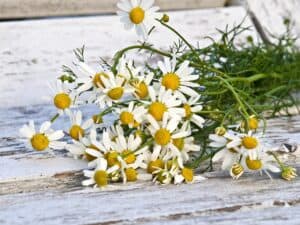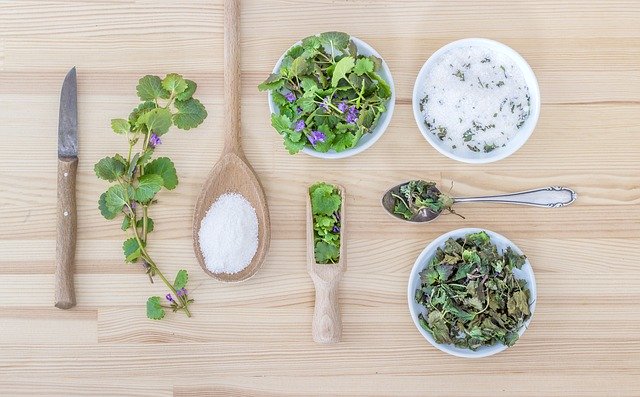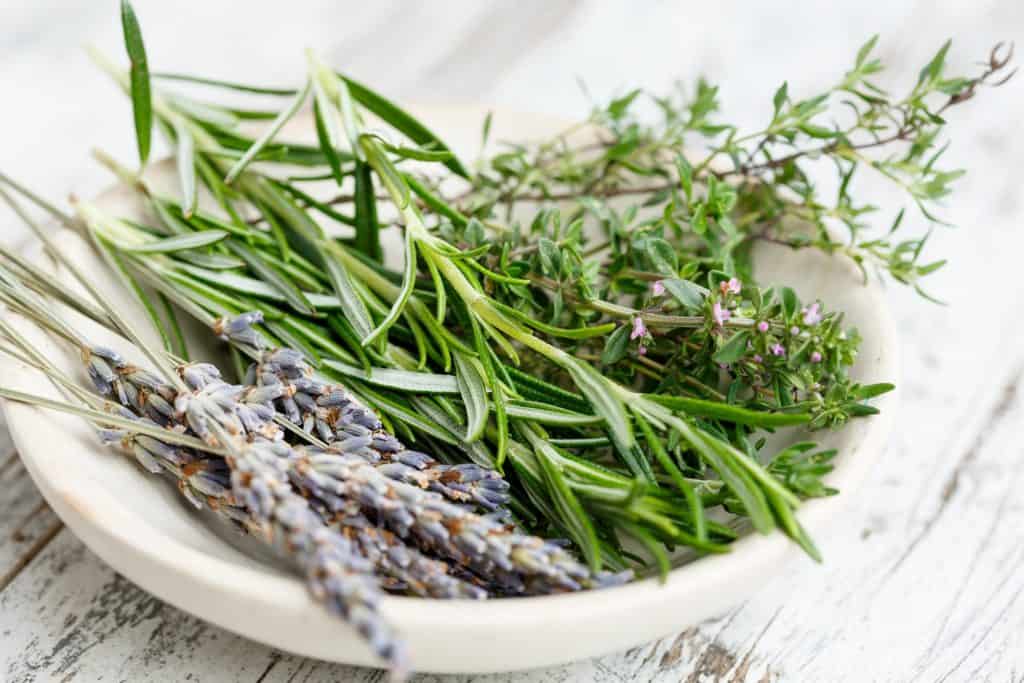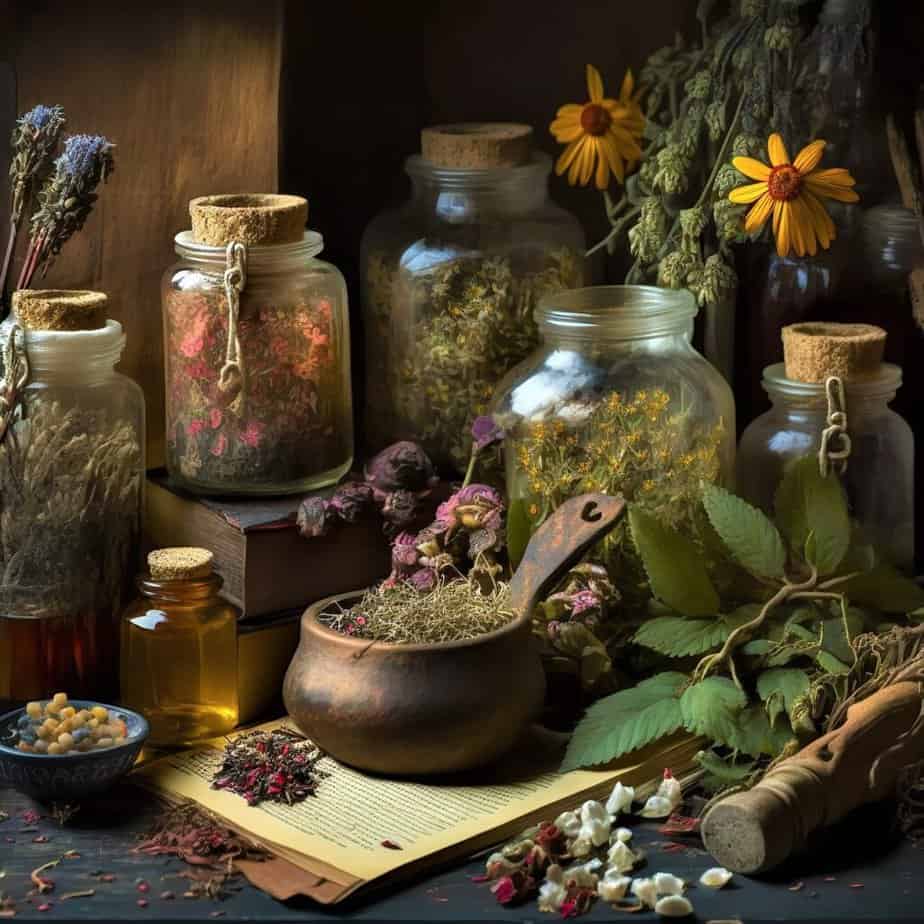For most green witches, growing your own herbs will be part of your spiritual journey.
If you’re new to the path or new to gardening, these 5 tips for growing your own herbs will help you get your herb garden off to a great start.
Growing your own herb is an easy way to support your well-being and your spiritual journey.
Even if you’re thumb isn’t very green, you can successfully cultivate your own herbs.
You might want to grow herbs for cooking and making a little kitchen magick, or you might want to explore those herbs used for healing and, of course, those used for magickal purposes too.
No matter which varieties you decide on, you’ll be saving money while ensuring you have fresh, organic herbs available to you.
This is especially good if you’re growing culinary herbs, since knowing where your food comes from and what has happened to it before you consume it is an important aspect of living well today.
So here they are: 5 Tips for Growing Your Own Herbs
1. Make a plan for growing your own herbs
While this isn’t a very exciting step, it’s an important one. The first step is the prep stage. Consider these things:
- where you want place your herb garden?
- what you intend to grow
- ways you’re going to use them
- how much room you’re going to need
This research will help you know exactly which supplies you’ll need to successfully begin your herb garden.
Read: How to Start a Green Witch’s Garden
2. Decide Between Seeds or Started Plants
Next, decide if you’ll start from seed or buy plants instead.
Each of these has pros and cons.
If you enjoy the nurturing aspect of watching things grow and can devote the time and effort it takes, you might opt for starting your own seeds.
If you don’t have the time or energy (or patience) to begin from scratch, then go with plants.
If you’re new to keeping herbs, the already-started plants are going to be much easier for you. This option is recommended for most people who are starting their very first herb garden, since it means you can ease into caring for herbs without having to start them from seeds. Later on, when you’re more experienced, give starting seeds a go.
Starting seeds and nurturing them can be a very rewarding activity for gardeners who are ready to expand their knowledge base. With a little time and patience, you can do both confidently!
(In my own garden, I often do both, since it can be hard to find started plants for the less common types of herbs.)

3. Learn about Each Herb Before You Decide to Plant It
Before you start planting your herbs, understand what type of care each herb needs.
Each one will have different guidelines, such as how much water it needs, whether or not it thrives in full sun, and whether it needs to be in a container or in the ground.
Perennial or Annual
Also, be sure to check whether your chosen herbs are perennial or annual. This can make a difference in how you’ll want to grow them. I usually opt to put annuals in large pots. The perennials generally go in the ground in my garden. Of course, feel free to experiment with what works for you.
Growing Habits
Know the growing habits of each type of herb you plan to grow since some herbs will spread out and take over your garden space! I keep oregano in a pot for just this reason. It has a tendency to just take over if you don’t keep it contained. Same with mint. Given the chance, it will spread everywhere.
Safety
Don’t overlook safety, either. Not every herb is safe to consume. Some are poisonous.
For some herbs, you can use certain parts of the plant and not others. So do your homework and be sure you know what you’re growing.
Here are two examples of what your research will turn up:
- Mint grows very fast and works best grown in a container by itself (because it spreads quickly). It grows well in sunlight, but it can also take a bit of shade and still grow well.
- Rosemary grows better in cool climates that have sun, and it needs to be brought indoors during the winter. You can also grow rosemary as an annual in colder climates.
Once you know these things about your chosen herbs, it makes your job of caring for them much easier. Plus, you’ll feel more confident in your gardening skills.
I’m sure that you’ll find that you have an easier time growing certain herbs than others. Most gardeners have at least one thing that doesn’t seem to do very well for them. My thumb is pretty “green,” but I have difficulty growing rosemary even though I can grow just about all other herbs easily.
4. Caring for Your Herbs
While many herbs can be grown indoors in planters, they still need to be close to a window. Some plants may need to be moved outdoors for at least a few hours, as most herbs should get 3-4 hours of direct sunlight each day. Again, this will depend on the herbs you’re growing and what your indoor growing location is like.
The research you did will help you understand what the needs are of each plant.
Remember that care includes sunlight and temperature control, watering, and using the right soil. Each of these factors will contribute to the success or failure of your plants.
5. Harvest When Ready
Now this seems like it’s obvious, but plants have a way of being ready when you’re not.
Something to keep in mind when harvesting your herbs is that the more often you do it (when they are ready), the healthier the herb plant will continue to grow.
Look at each variety’s instructions to understand harvesting guidelines. Some herbs dry well, while others do best as a tincture made from the fresh herb.
The wrap-up to tips for growing your own herbs…
Like most things, just get started! “Start before you’re ready” is my favorite bit of advice for everything in life.
There’s no perfect time to begin anything new. So just do it.
Gardening is no different. You’ll make mistakes. Everyone does. That’s part of the process with gardening. I hope you’ve enjoyed reading these tips for growing your own herbs.
Check out this post for more on starting your green witch garden.
Experience is really the best teacher!
Enjoy your journey with growing your own herbs!
Bright blessings and happy gardening. Blessed be.
You might like these too:
Being Green in Your Home & Garden
How to Start Your Own Home Apothecary: Tools & Methods



